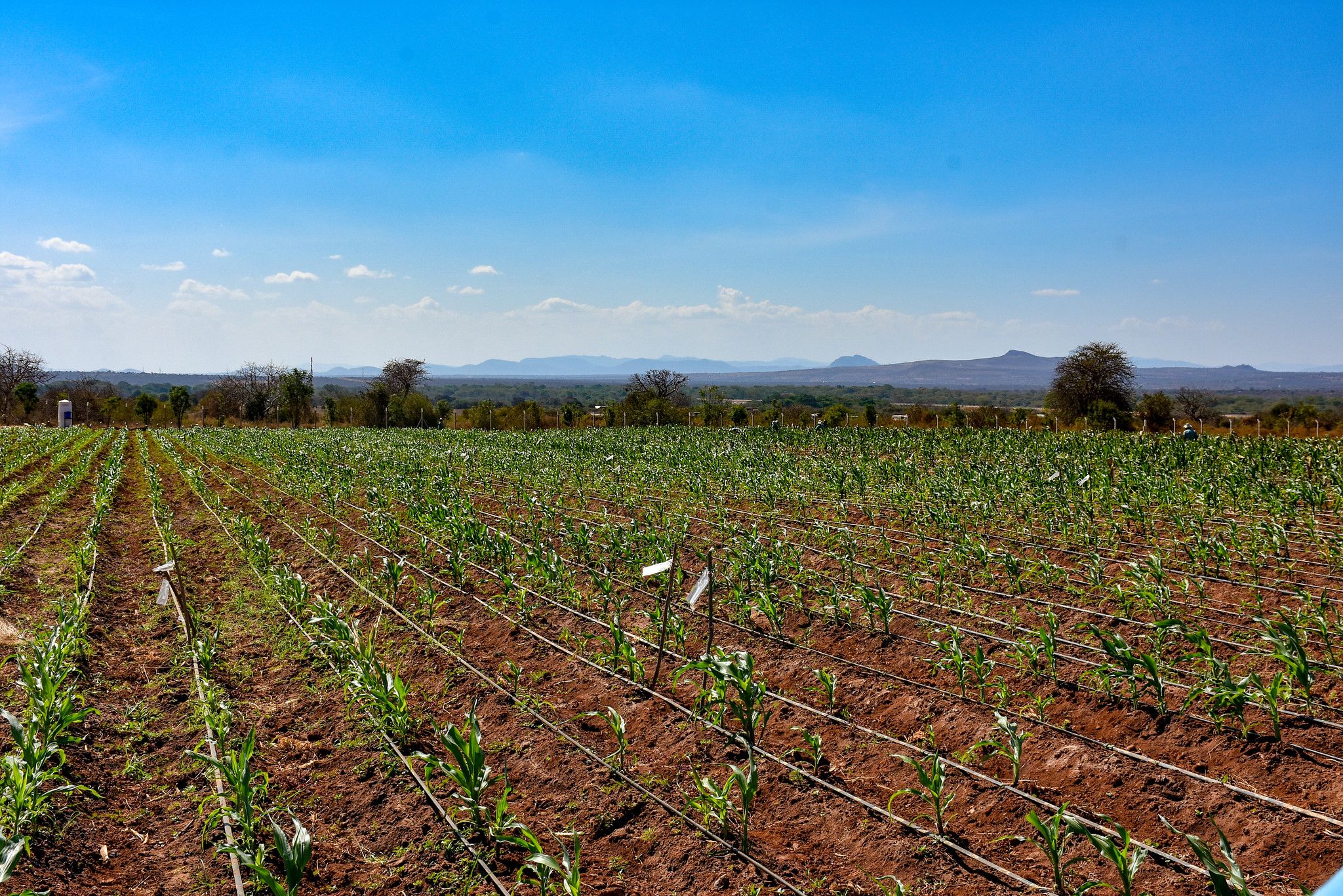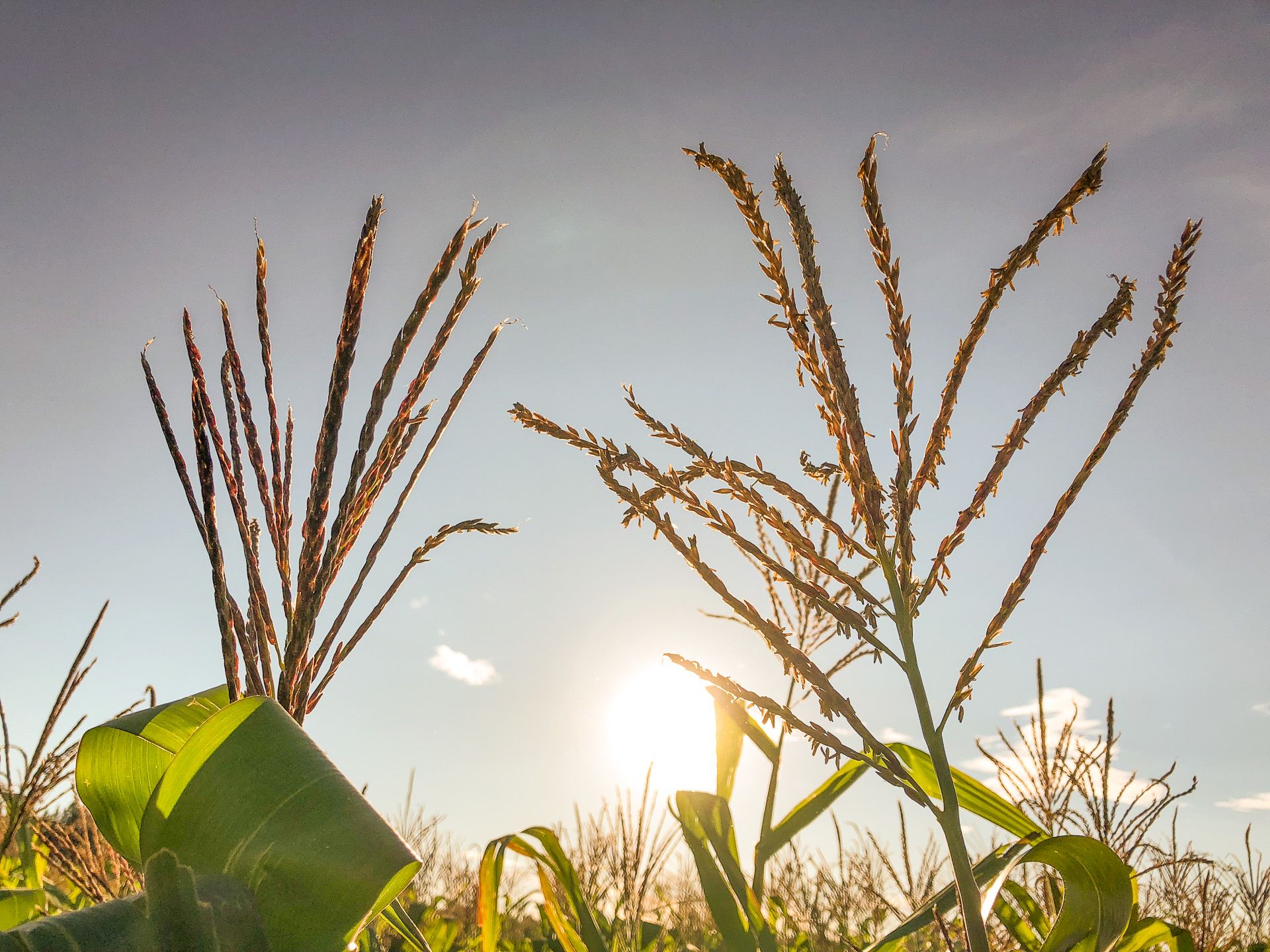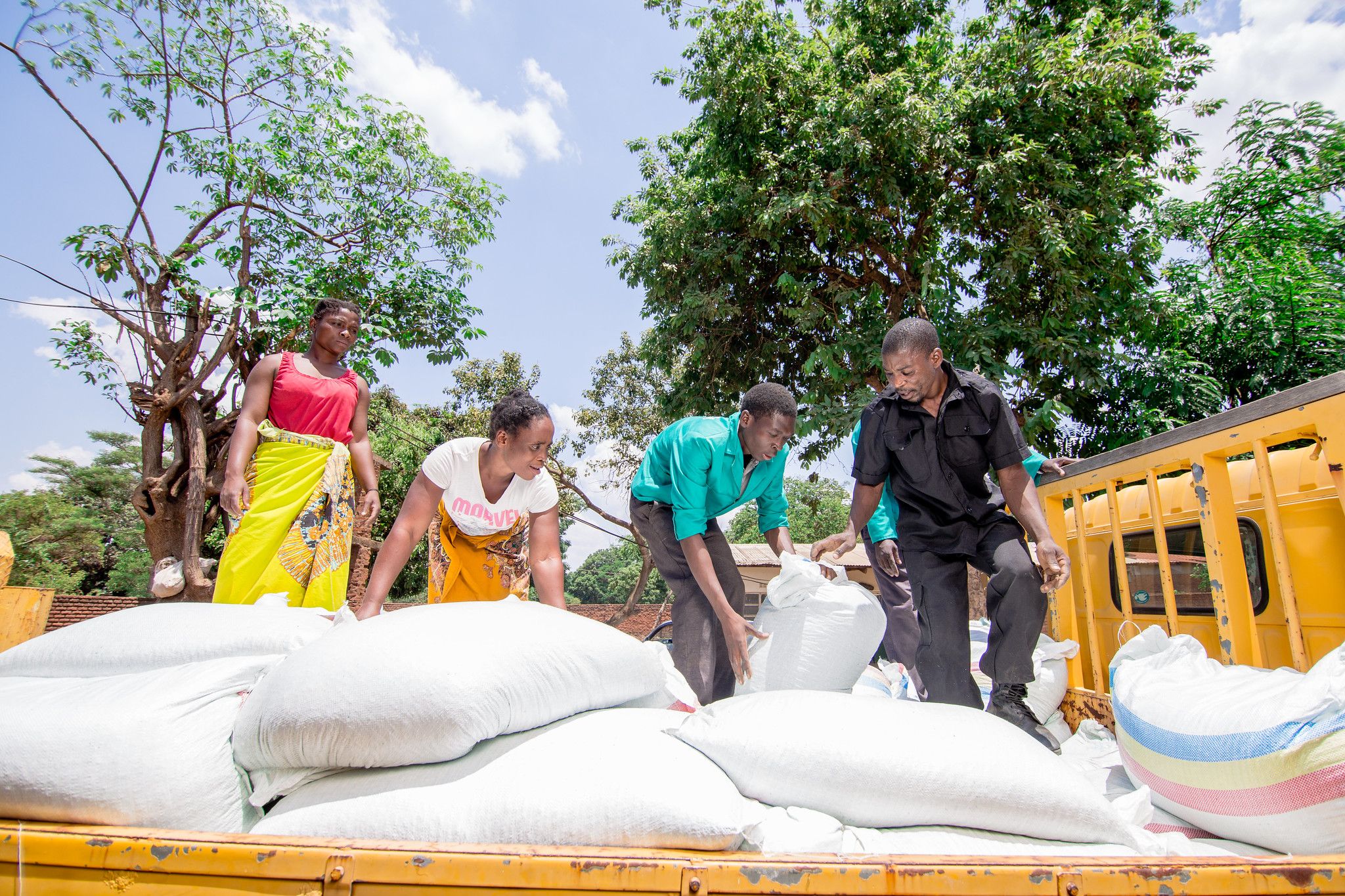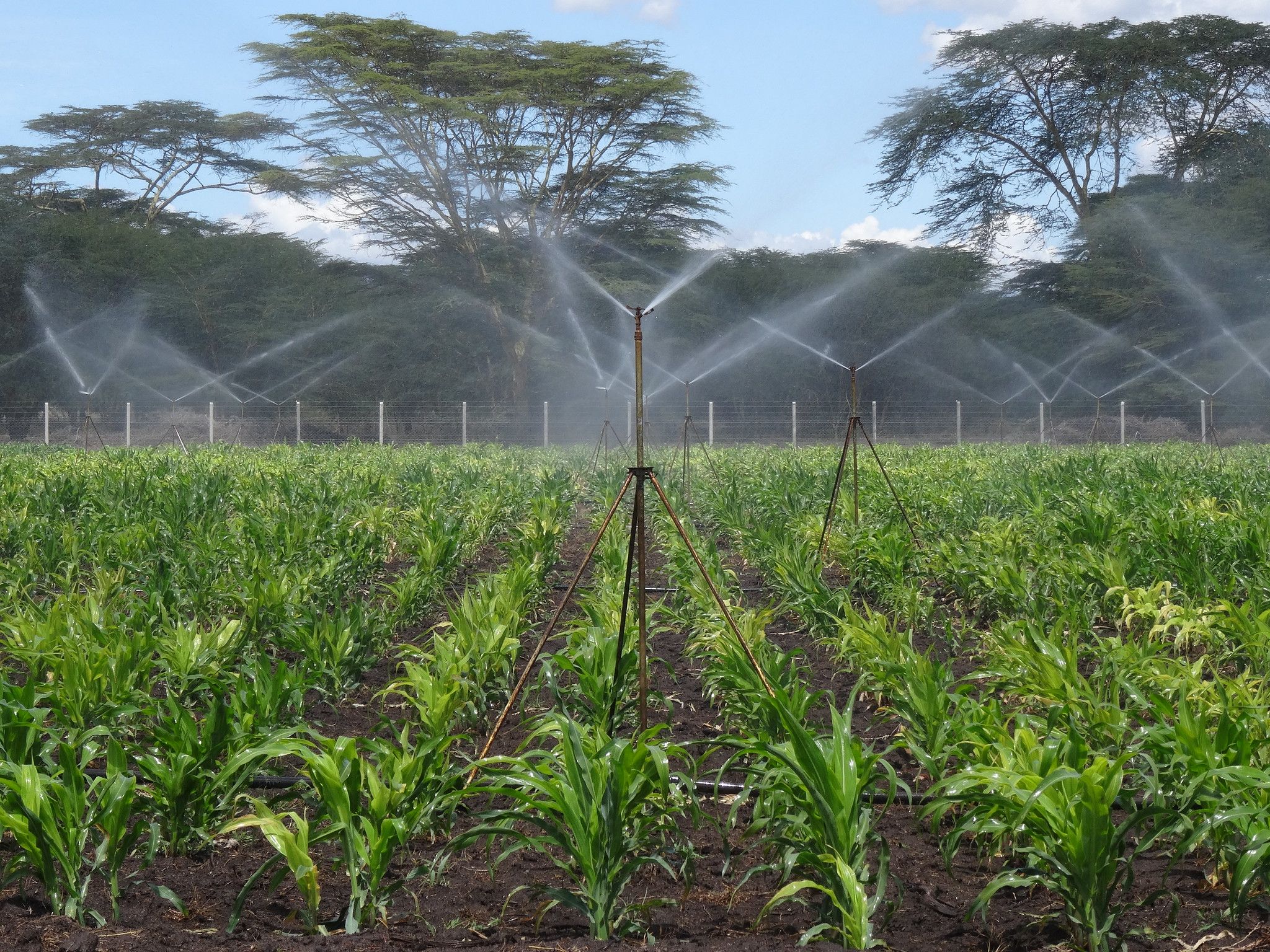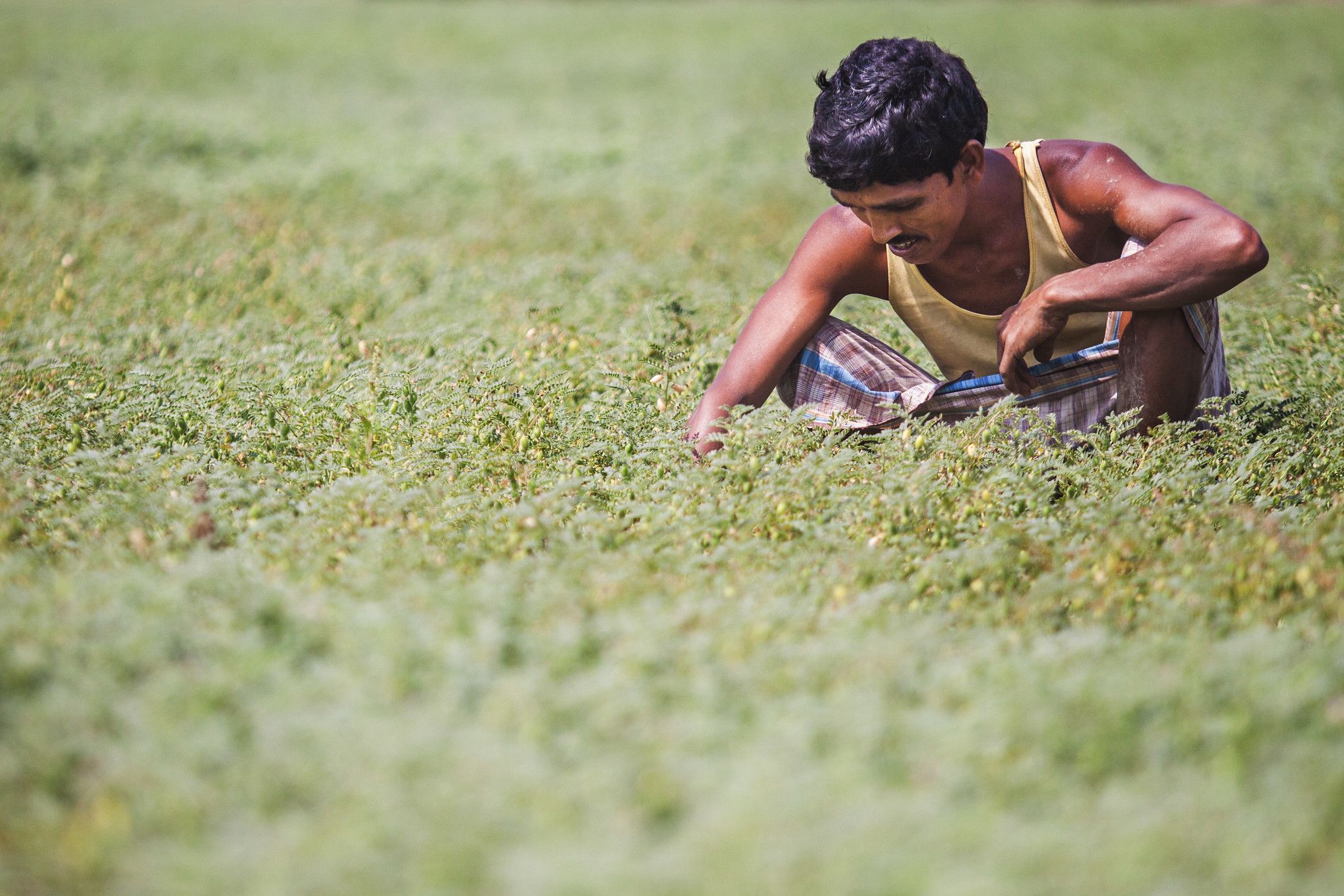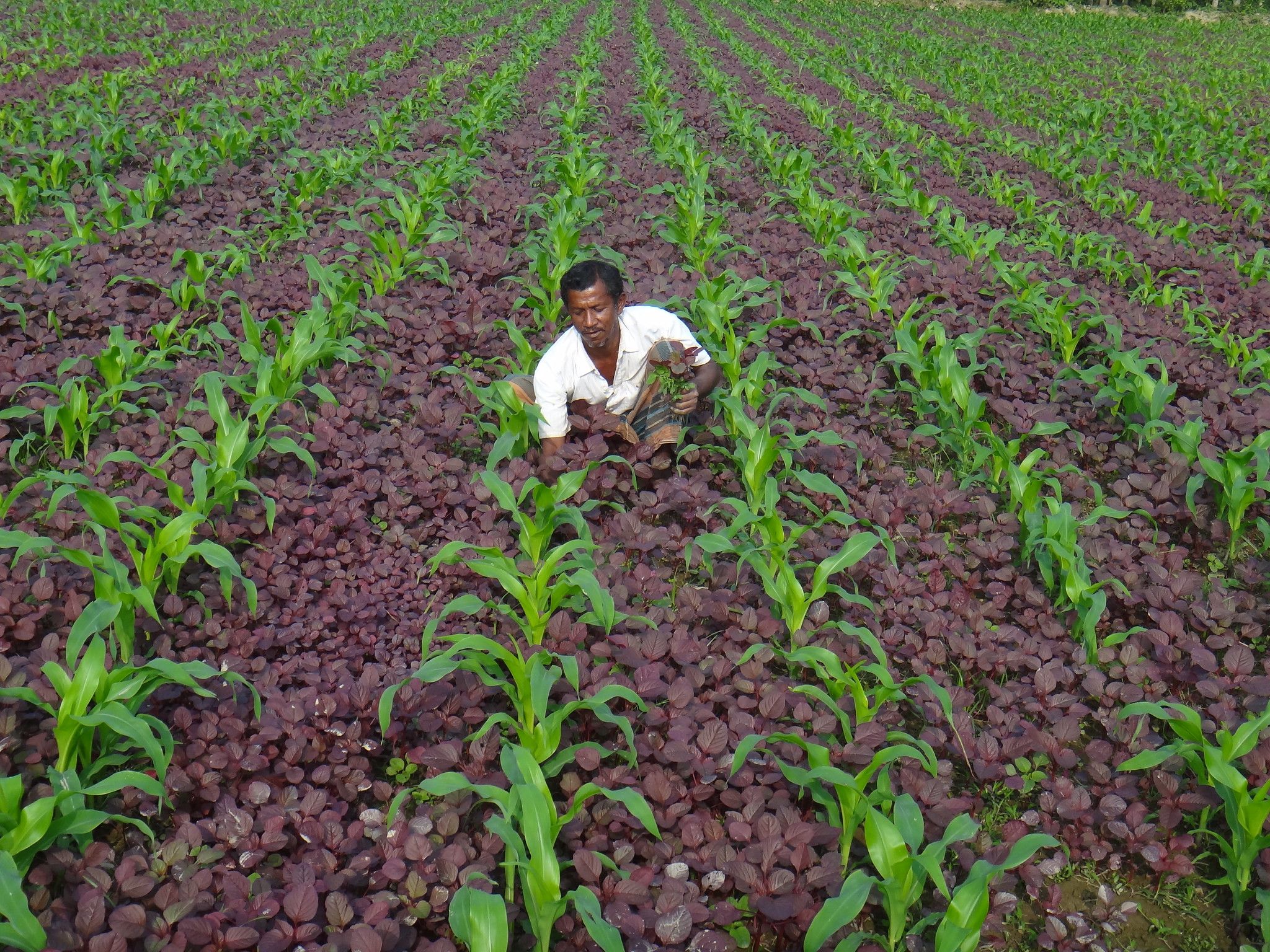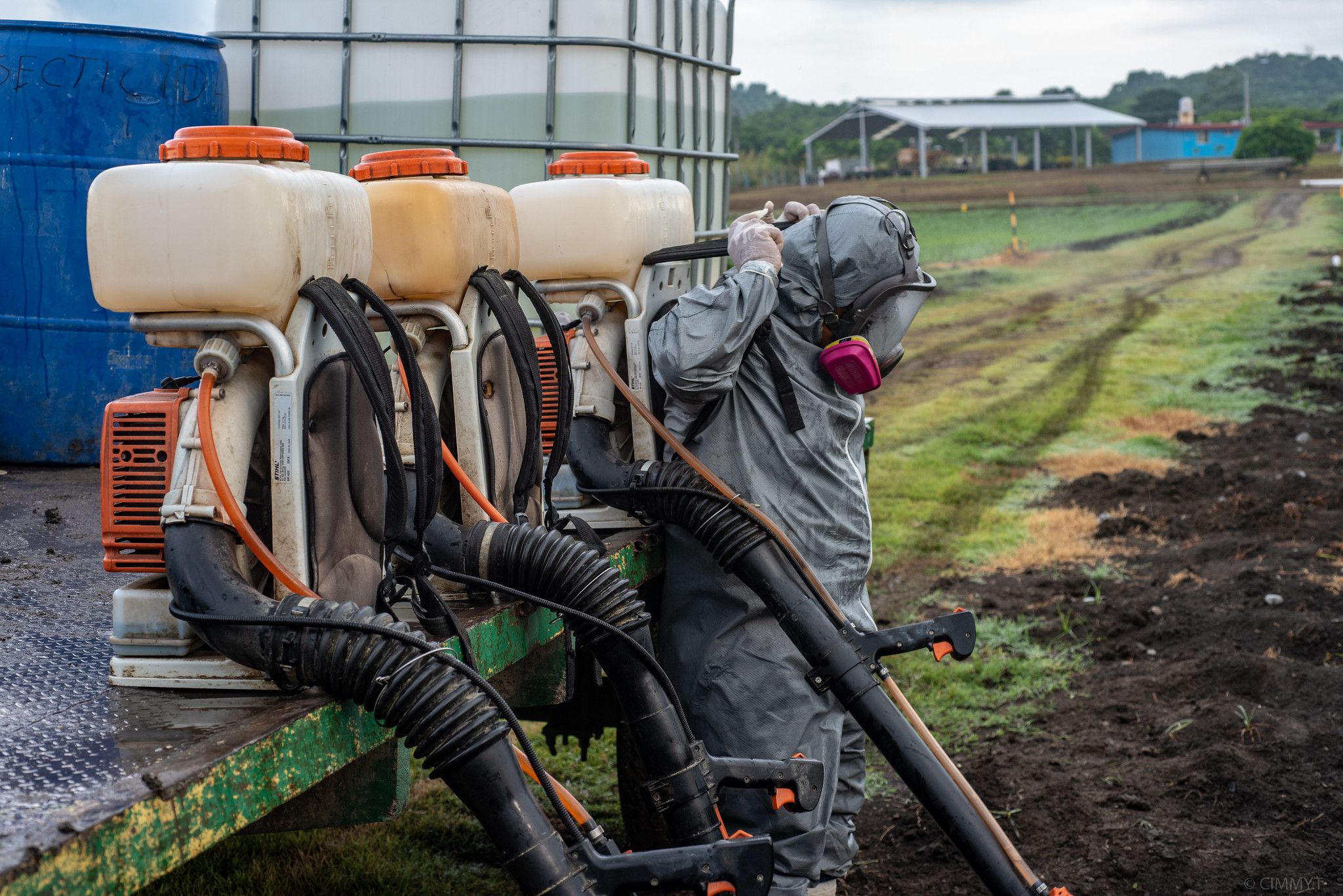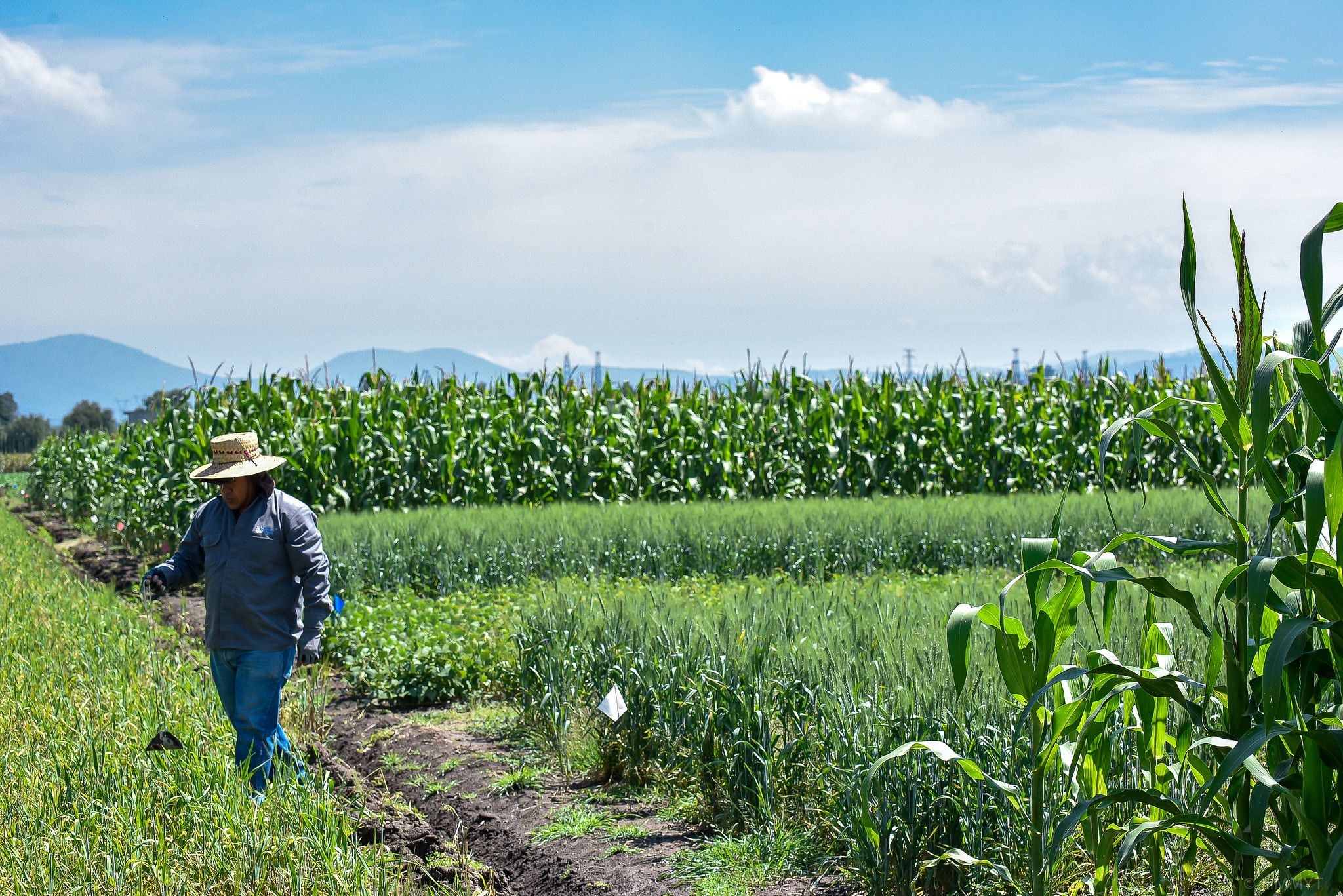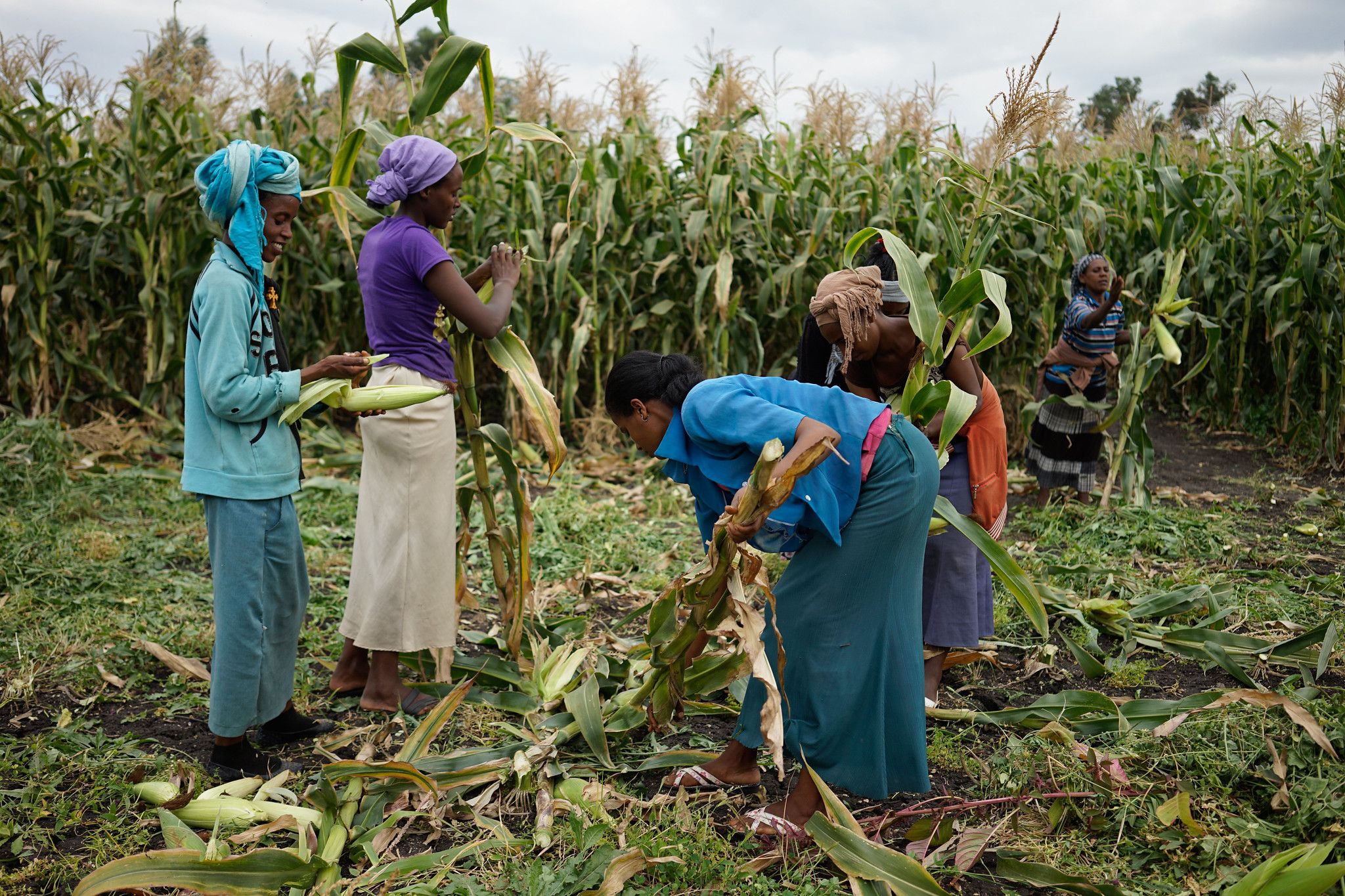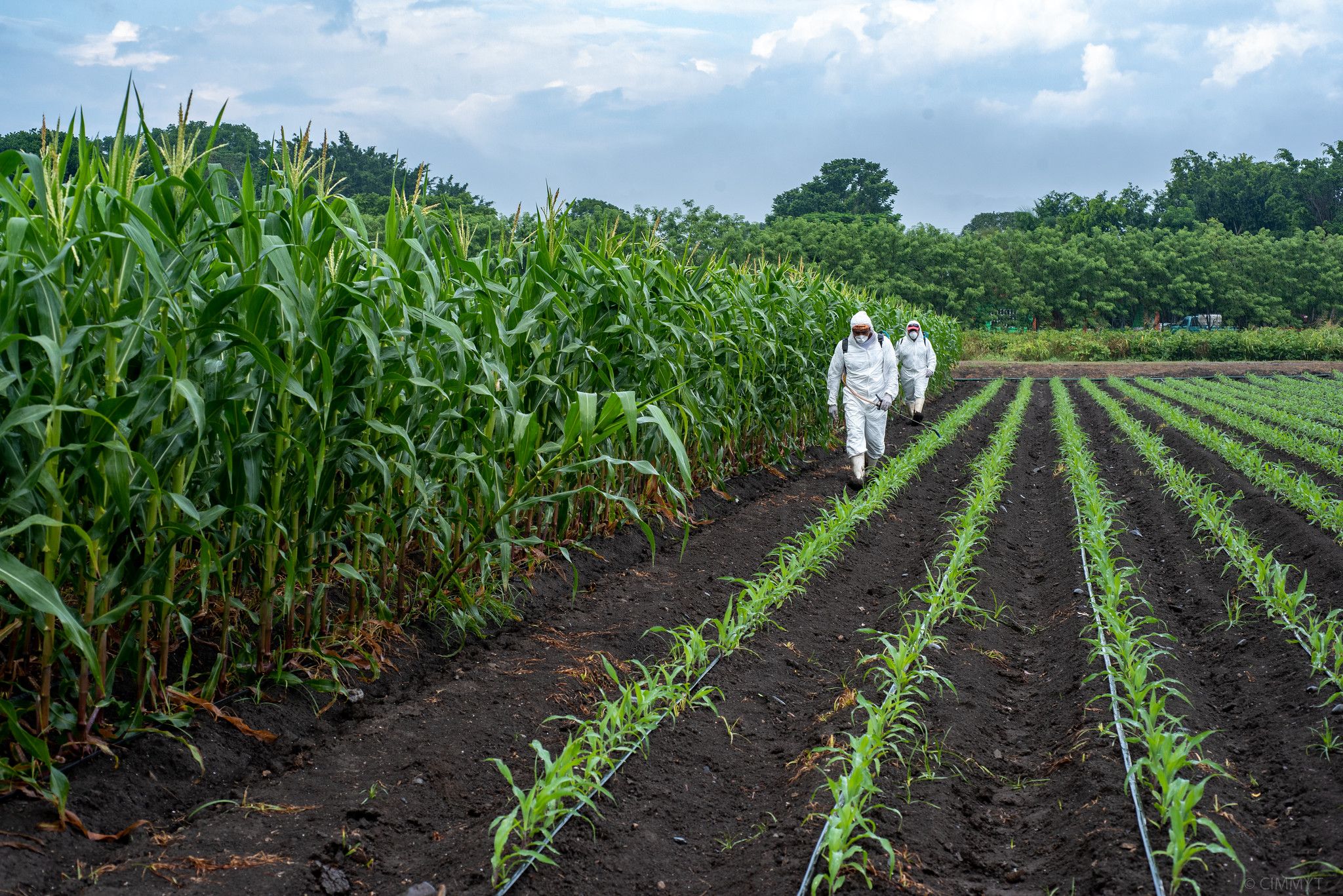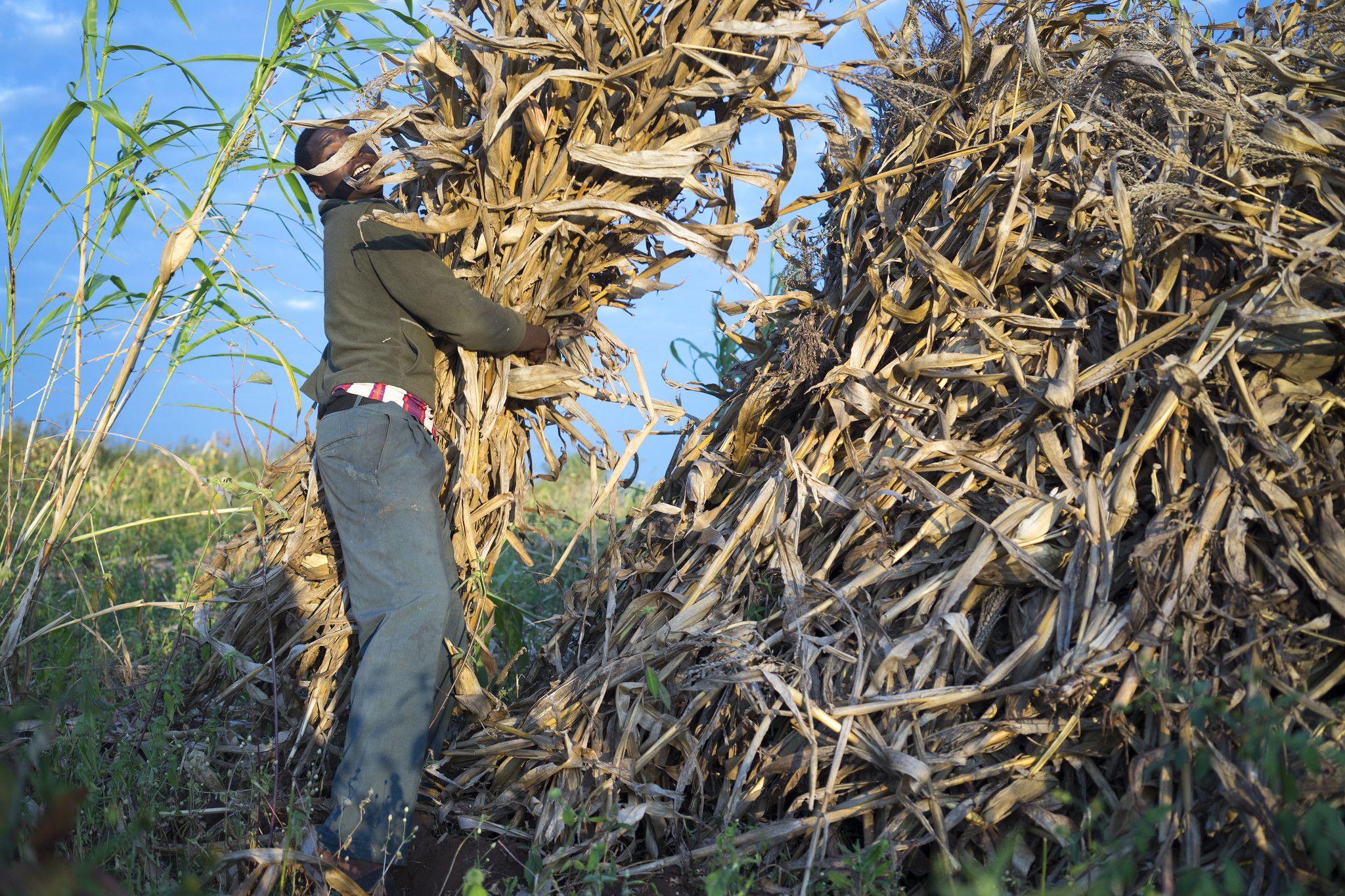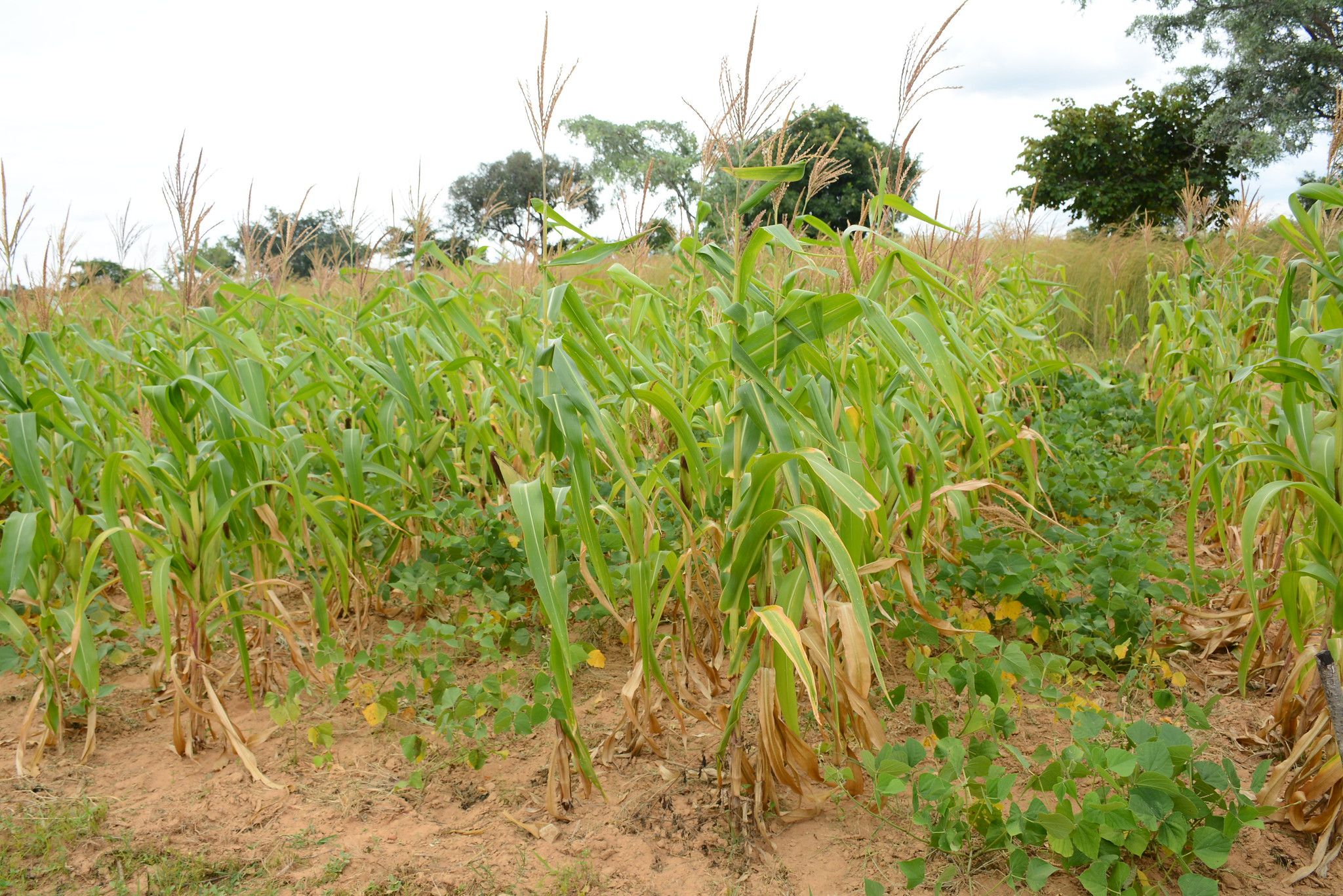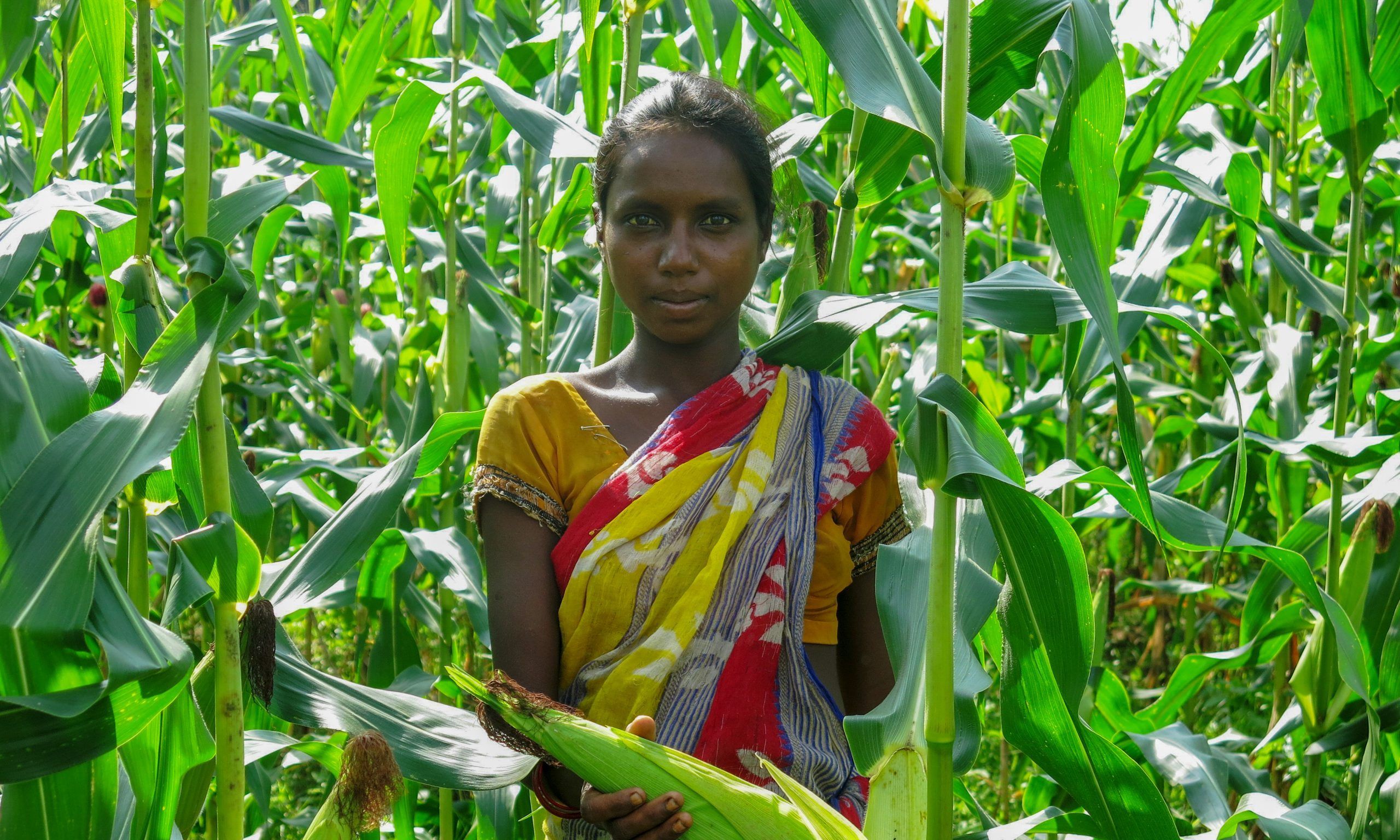research: Maize
Cobs & Spikes podcast: Striving for higher quality, more nutritious maize
While increasing yields will be necessary to feed the 9.8 billion people expected by 2050, Natalia Palacios — head of the maize nutritional quality laboratory at CIMMYT — says that’s only part of the challenge. She argues we must also strive for higher-quality, more nutritious crops. According to the United Nations Food and Agriculture Organization, over 800 million people are considered undernourished. That’s about one out of every nine people in the world. Find out how Palacios’ research helps CIMMYT and its partners close the gap and support better health and nutrition.
For more information on Palacios’ research linking provitamin A orange maize and reduced aflatoxin contamination, read the publication here.
Maize Doubled Haploid Production Services
CIMMYT provides a maize doubled haploid (DH) production service at cost to maize breeding programs in Africa and Latin America at its DH facilities in Kenya and Mexico.
This service reduces the time required to develop homozygous maize lines to just over one year, instead of three to seven years using more traditional inbreeding methods. This technology also results in better-quality maize lines: DH maize lines are 100% homozygous, whereas traditional inbreeding generates lines with only approximately 99.2% homozygosity. These advantages help breeders increase their rate of genetic gain: the rate at which the genetic potential of a crop increases in yield over time.
CIMMYT established centralized DH line production facilities for Africa at KALRO-Kiboko, Kenya. A similar facility is also in operation for Latin America at CIMMYT’s experimental station in Agua Fría, Mexico. Public and private sector organizations involved in maize breeding can access the DH production service by signing a DH service agreement.
Seed Production Technology for Africa (SPTA)
The Seed Production Technology for Africa (SPTA) project is working to implement an advanced seed production system in Africa for the benefit of smallholder farmers in sub-Saharan Africa.
Hybrids are maize varieties in which the seed is produced by crossing two different parent lines, increasing the yield through heterosis. In hybrid maize seed production, the pollen-producing tassel must be removed on female parent plants to avoid self-pollination. If detasselling is not done in a timely and accurate way, pollen from the female plants can pollinate the ears, causing contamination and reduced seed quality. Currently, African seed production actors prevent self-fertilization during certified seed production by manual detasselling. This process requires considerable time and labor and reduces seed yield potential of the detasselled seed-bearing plants (female plants).
The Seed Production Technology for Africa (SPTA) project was launched to improve access for smallholders to high quality seed of modern maize varieties. The project targets small and medium seed production companies in the region to strengthen their capacity to produce high quality hybrid maize more efficiently, and at reduced cost. These modern hybrids will improve yield in drought prone and low fertility production conditions that are common among resource-constrained African smallholders, particularly those that are not able to access adequate fertilizers.
SPTA efforts will contribute to a more vibrant private seed sector by providing higher quality hybrid seed using a technology that fits well within existing production systems of small and medium enterprise seed companies. This will help to improve productivity gains for smallholder farmers and ease the burden on public funding for development.
The SPTA project originated from the Improved Maize for African Soils (IMAS) project that concluded in 2015. IMAS focused on developing maize hybrids that could use nitrogen fertilizer more efficiently to deliver higher yields under low fertility conditions.
How SPTA works
This project seeks to introduce a proprietary SPTA process that eliminates the detasselling step by utilizing a mutation in the naturally occurring maize gene – Ms44 – that aborts the development of microspores into pollen to create female parent plants that are male-sterile, eliminating the need to manually remove the pollen-producing tassels.
The cross-pollination between this female parent and the male parent is therefore more reliable, efficient, and cost effective. Importantly, whilst the SPTA process utilizes a transgenic maintainer line, no transgene will be present in the single cross production, three-way hybrid production, or the final hybrid seed, sold to farmers. The benefit of SPTA is that it works across genetic backgrounds, unlike cytoplasmic male sterility (CMS). An additional benefit of SPTA is hybrids produced using this technology yield 200 kg ha-1 more as a result of conserving resources for grain production.
Collaboration between Pioneer Hi-Bred International, Inc. (an affiliate of Corteva Agriscience) (Corteva), Agricultural Research Council of South Africa (ARC), Kenyan Agriculture and Livestock Research Organization (KALRO), Qualibasic Seed Company Limited (QBS) and CIMMYT
The SPTA project which is funded by the Bill & Melinda Gates Foundation originated from the Improved Maize for African Soils (IMAS) project that concluded in 2015, where the focus was on developing maize hybrids that could use nitrogen fertilizer more efficiently to deliver higher yields under low fertility conditions. The overall objectives of the project are to:
- Improve the grain yield potential of stress tolerant maize hybrids in low fertility environments.
- Develop a new hybrid production platform capable of producing sufficient early generation seed to support production of high-quality certified seed each year.
- Simplify hybrid maize seed production in sub-Saharan Africa.
Objectives
- Improve the grain yield potential of stress tolerant maize hybrids in low fertility environments.
- Develop a new hybrid production platform capable of producing sufficient early generation seed to support production of high quality certified seed each year.
- Reduce the production costs of seed partners in the sub-Saharan region.
The SPTA concept was confirmed suitable for tropical environments in Kenya, Zimbabwe, and South Africa in the first phase of the project (2017-2022). The current phase (2022-2024) is working towards licensing of the homozygous Ms44 seed to seed companies serving smallholder farmers in Africa. Eventually, the proprietary SPTA Maintainer Event and SPTA process will be licensed royalty-free by Corteva for further sublicensing in the production of SPTA Ms44 Maize in sub-Saharan Africa.
Ms44 and the SPTA Maintainer are introgressed into African-bred germplasm to produce male-sterile female parents (INP) suitable for low-nitrogen and drought environments in Africa. The commercial production of the INP will be carried out by QBS in South Africa after it has achieved full Excellence Through Stewardship (ETS) recognition and executed a royalty-free license agreement for the SPTA Maintainer Event with Corteva.
Seed companies will apply for release/registration and commercialize SPTA Ms44 maize only in sub-Saharan African countries that have acknowledged SPTA Ms44 maize as non-transgenic for the SPTA Maintainer Event. To produce and commercialize SPTA Ms44 maize, seed producers will have to access INP seeds from QBS and agree to implement all stewardship and management practices related to the use of SPTA Ms44 maize. Since the availability of SPTA Ms44 maize will be restricted this way, a percentage of its sales may be required to be paid into the FAO trust fund established by the Governing Body of the International Treaty on Plant Genetic Resources for Food and Agriculture.
Documents
SPTA project brief – Overview (updated November 2023)
SPTA project brief – Seed Production Technology for Africa: Efficient Seed Production Process for SMEs in Africa (updated November 2023)
SPTA project brief – Seed Production Technology for Africa: Modern and Pure Hybrids for African Farmers (updated November 2023)
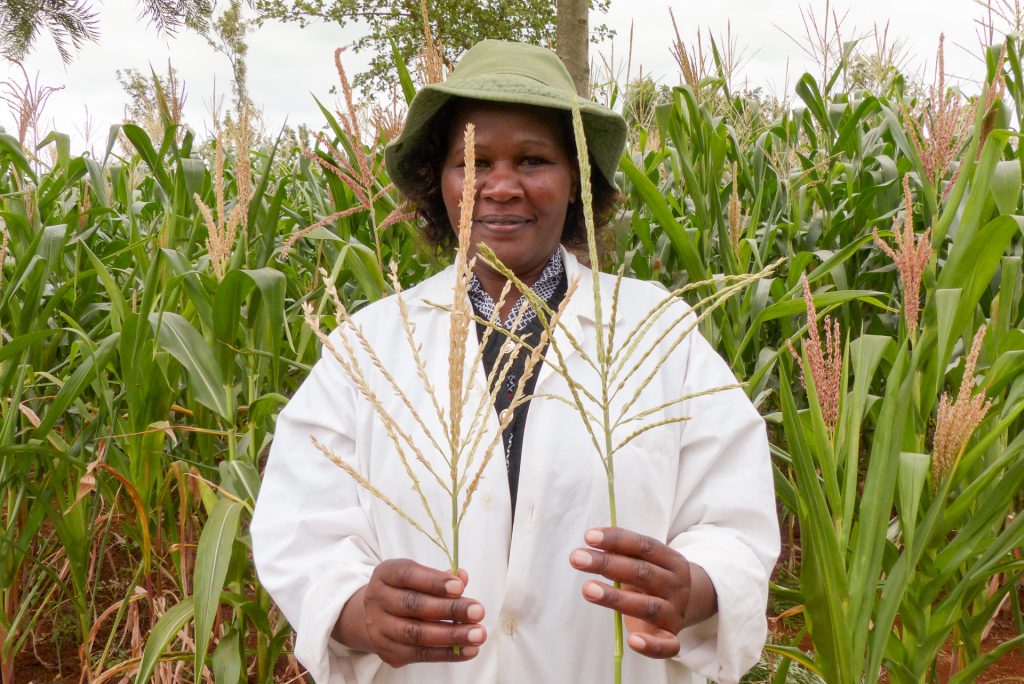
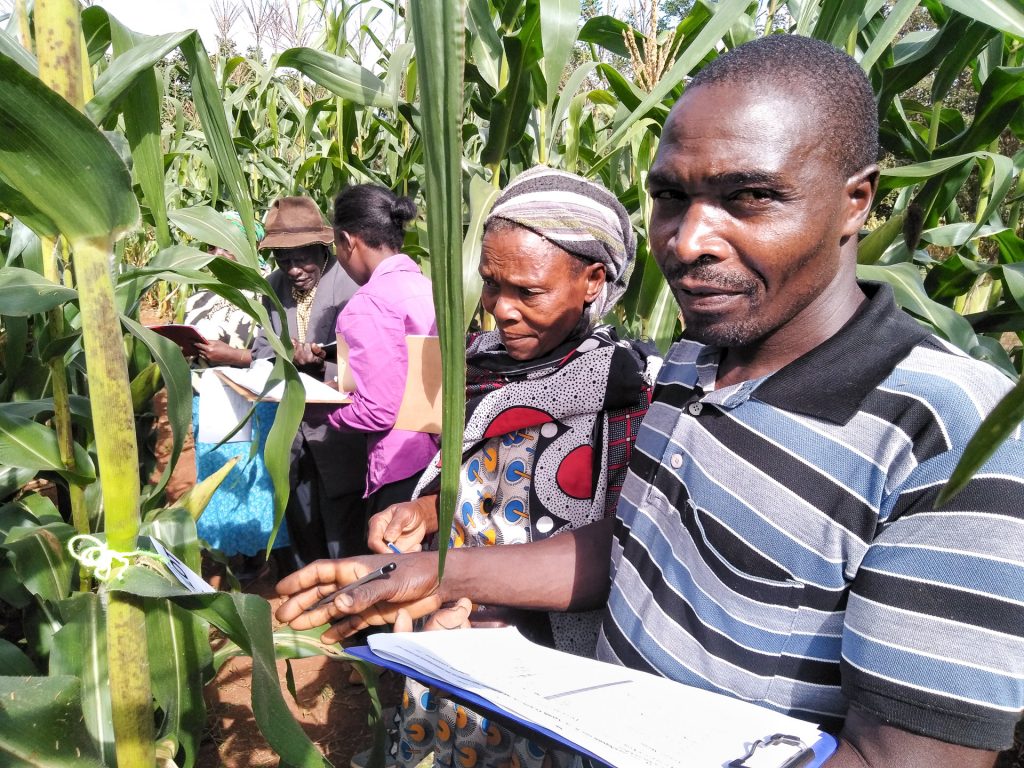
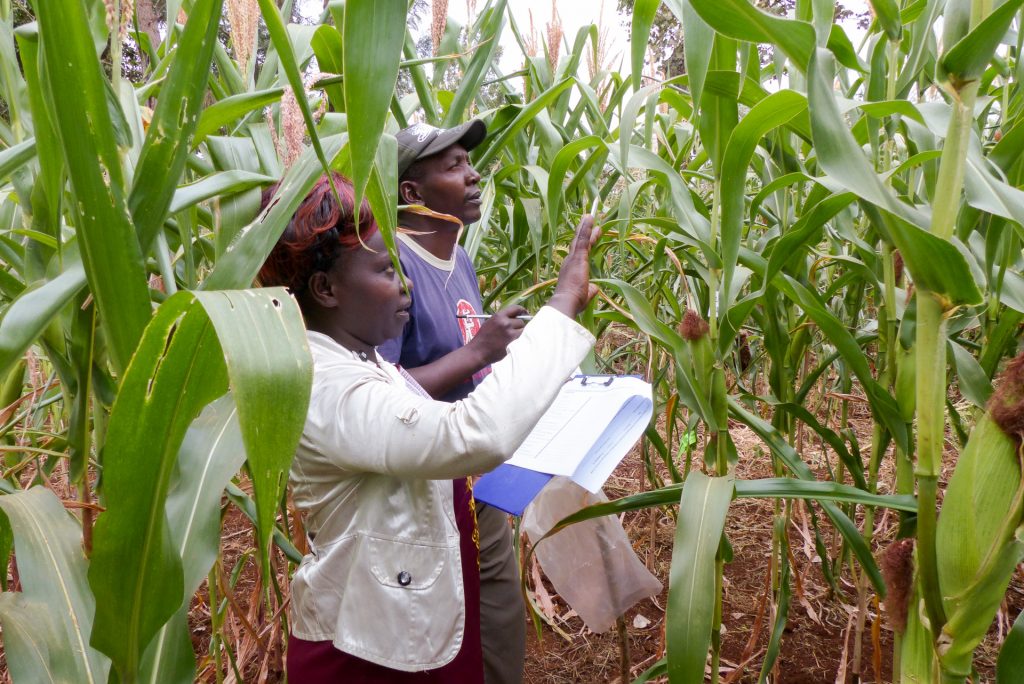
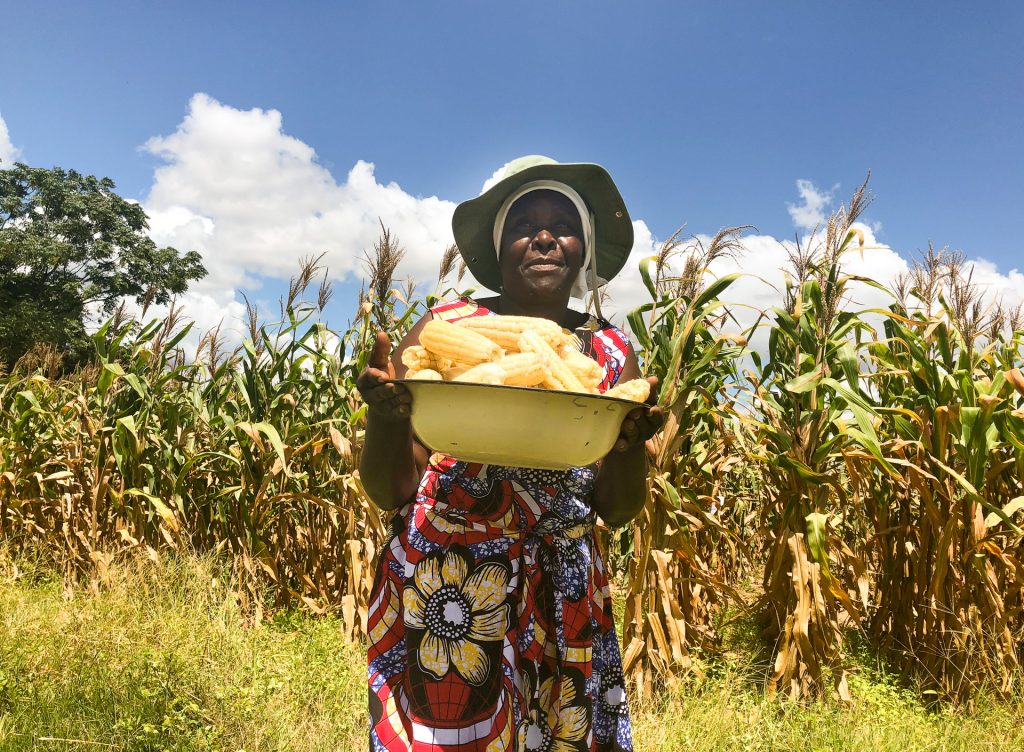
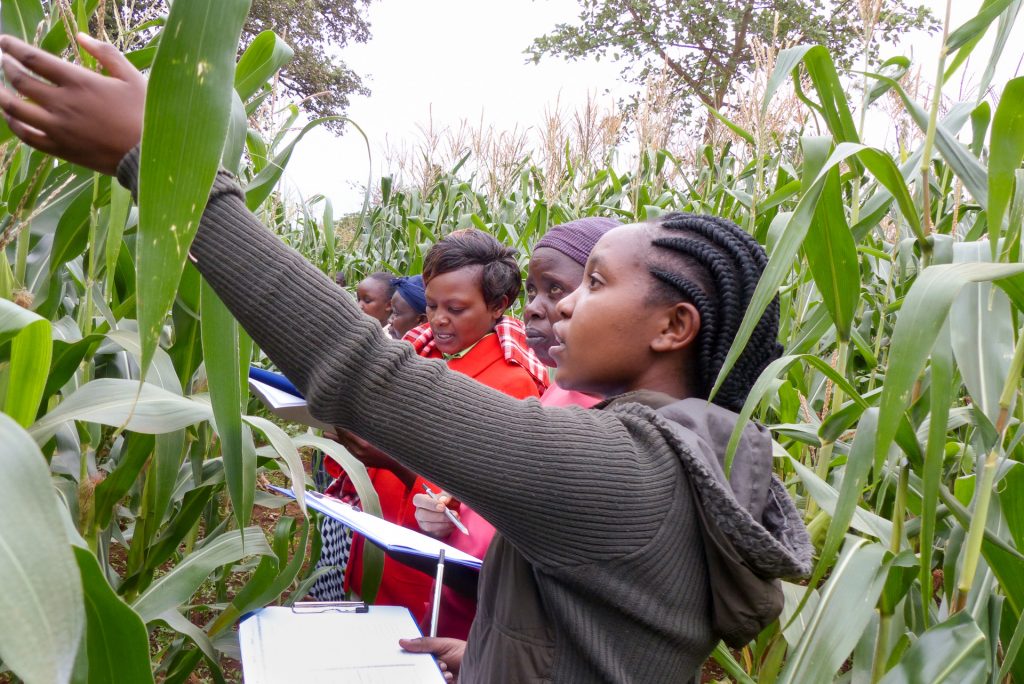
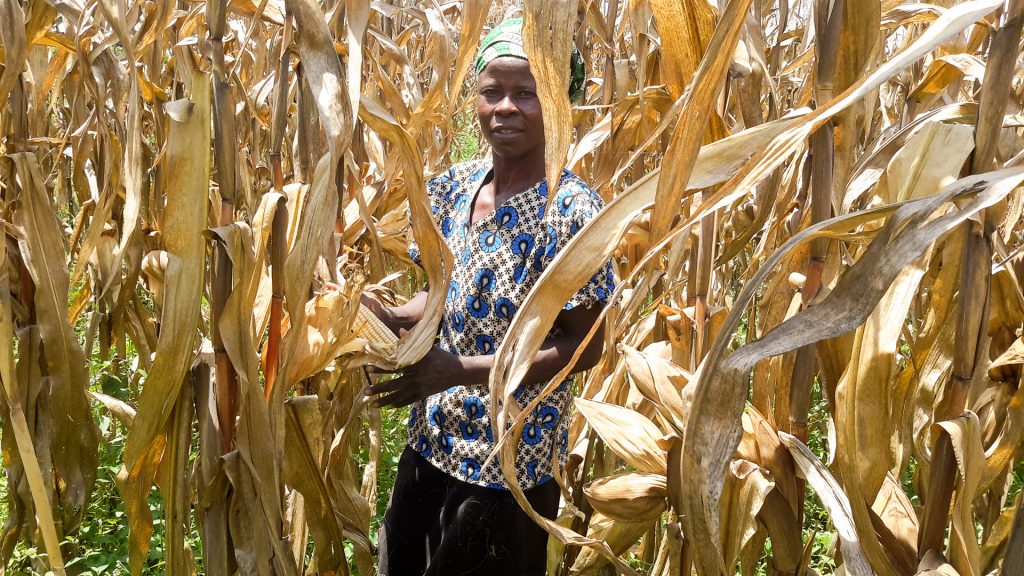
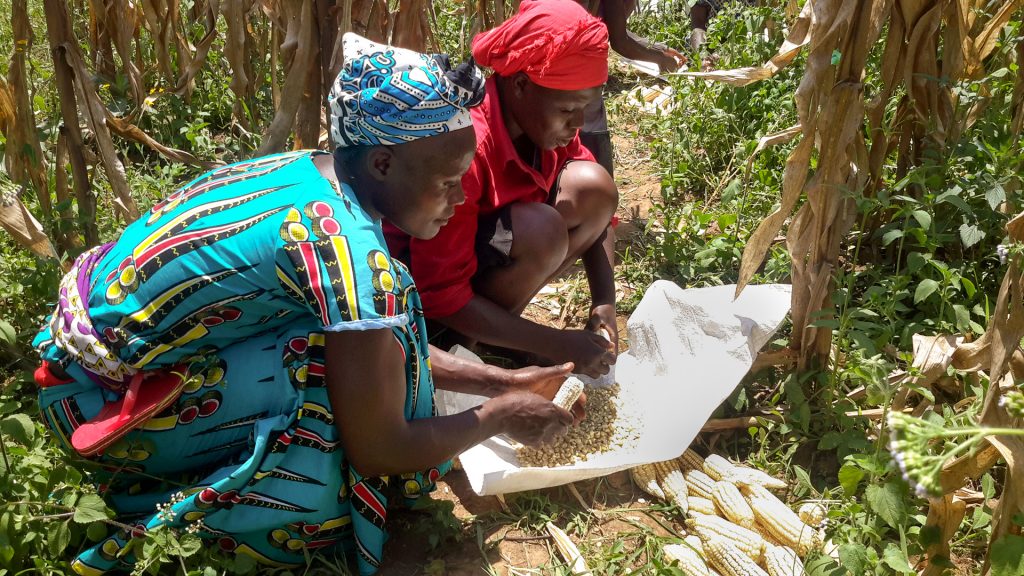
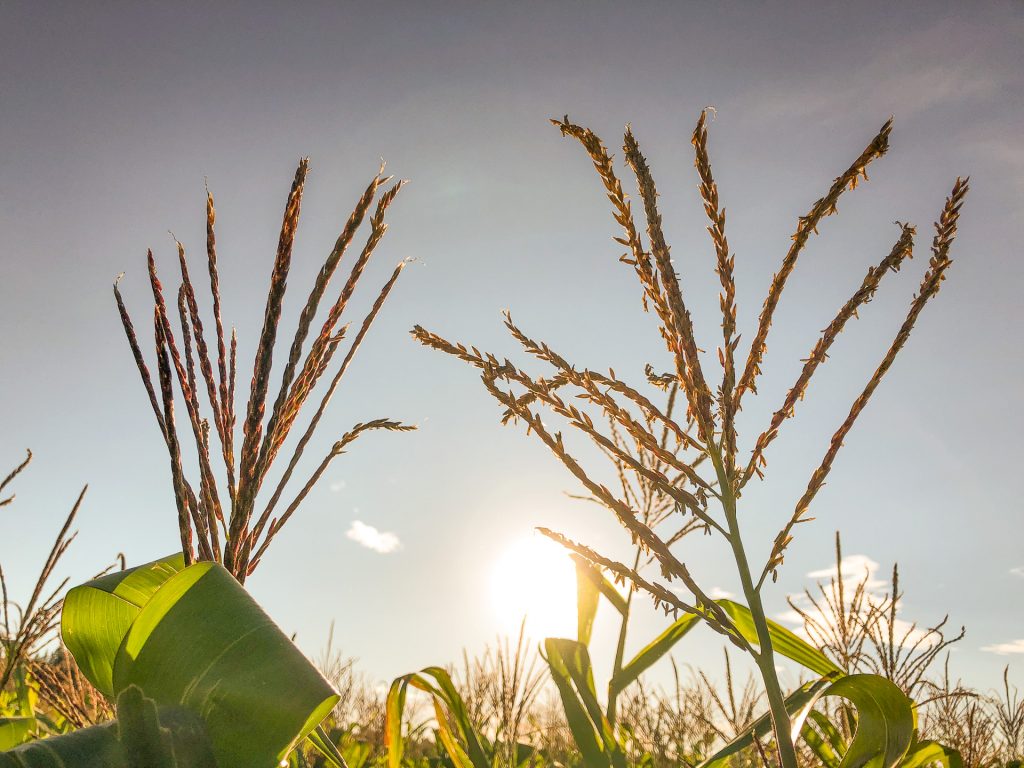
Malawi Improved Seed Systems and Technologies (MISST)
The Malawi Improved Seed Systems and Technologies (MISST) consortium project works to make elite, drought- and stress-resistant maize seed available to farmers in Malawi.
Funding Institutions: United States Agency for International Development, Government of Malawi
Principal Coordinator: Peter Setimela
Maize Lethal Necrosis Phenotyping Service
The CIMMYT-Kenya Agriculture and Livestock Research Organization (KALRO) Maize Lethal Necrosis (MLN) Screening Facility quarantine site is used to provide an MLN Phenotyping Service at cost to national agricultural research systems and seed companies in Africa.
KALRO and CIMMYT have been screening germplasm against MLN in Kenya since Nov 2012. The dedicated screening facility at KALRO Naivasha was established in 2013. This facility now represents a high quality phenotyping platform, permitting large-scale screening of germplasm from regional public and private partners.
To date, close to 90 percent of materials screened at Naivasha are susceptible under artificial inoculation. However, resistant and tolerant materials have been identified. Four first-generation MLN tolerant and resistant hybrids have been released in East Africa and a further 15-20 second generation hybrids are at advanced stages of testing.
Maize Lethal Necrosis Diagnostics and Prevention of Seed Transmission
This four-year Maize Lethal Necrosis Diagnostics and Prevention of Seed Transmission project will coordinate regional efforts to strengthen response to the rapid emergence and spread of Maize Lethal Necrosis (MLN).
Coordinated by CIMMYT, it will establish a community of practice among national plant protection organizations in eastern Africa for implementing harmonized MLN diagnostic protocols for detecting MLN-causing viruses and enable commercial seed companies to implement necessary standard operational procedures to produce MLN-free clean seed at various points along the maize seed value chain. It will also step-up MLN surveillance and monitoring in Malawi, Zambia and Zimbabwe, three of the major commercial maize seed exporting countries in sub-Saharan Africa.
The MLN project will be implemented in close partnership with the Alliance for a Green Revolution in Africa, the African Agricultural Technology Foundation, national plant protection organizations and commercial seed companies in eastern Africa. It will also pool expertise from relevant public- and private-sector partners, regional organizations, and seed trade organizations operating in the region.
Partners: The Alliance for a Green Revolution in Africa, the African Agricultural Technology Foundation, national plant protection organizations and commercial seed companies in eastern Africa
Improved Maize for Tropical Asia (IMTA)
The Improved Maize for Tropical Asia (IMTA) is employing modern maize breeding techniques to develop and deploy new, climate-resilient maize hybrids, including traits important for identified niche markets across tropical Asia.
Principal Coordinator: B.S. Vivek
Fall Armyworm Response
Following the recent emergence and rapid spread of the fall armyworm pest in Africa, the Fall Armyworm Response project is bringing together expert partners to develop and disseminate science-based recommendations to manage the pest.
Identifying and Developing Improved Tropical Maize Germplasm with Native Resistance to Fall Armyworm in Sub-Saharan Africa
Following the recent emergence and rapid spread of the fall armyworm pest in Africa, the Breeding for Resistance to Fall Armyworm in Africa project is beginning the process of identifying and developing new varieties of maize resistant to the pest.
Nutritious Maize for Ethiopia (NuME)
Nutritious Maize for Ethiopia (NuME) is implemented in collaboration with research institutions, international non-governmental organizations, universities and public and private seed companies in Ethiopia.
Through the development and dissemination of new maize varieties, including quality protein maize (QPM), and the deployment of improved agronomic practices, NuME is helping to reduce food insecurity by strengthening Ethiopia’s capacity to feed itself.
NuME brings QPM to rural maize producers in the Ethiopian maize belt and beyond, where consumers – especially young children and women – are at risk of lysine deficiency. Since 2003, the Ethiopian Institute of Agricultural Research and CIMMYT have made good progress in breeding, resulting in new QPM hybrids and open-pollinated varieties adapted to all major maize-producing agro-ecologies in Ethiopia, including the high-potential mid-altitude and highland zones, as well as adapted to drought-prone zones.
Partners: Ethiopian research institutions, international non-governmental organizations, universities and public and private seed companies
Nepal Seed and Fertilizer Project (NSAF)
The Nepal Seed and Fertilizer (NSAF) project facilitates sustainable increases in Nepal’s national crop productivity, income and household-level food and nutrition security, across 20 districts, including five earthquake-affected districts.
Nepal’s agriculture is mostly small-scale and subsistence-oriented, characterized by a mix of crop and livestock farming. The agriculture sector represents about one-third of the country’s gross domestic product and employs 75 percent of the labor force.
Over half of Nepal’s farms operate on less than half a hectare, with the majority unable to produce enough to meet their household food requirements for the whole year. Combined with an increasing urban population, it will not be possible for the country to meet future food demand without increased agricultural productivity and competitiveness of domestic production.
Major cereal crops and vegetables currently have low yields, but there are significant prospects for increases through improved seed and soil fertility management practices. A large part of this yield gap results from a lack of knowledge, inadequate access to affordable improved technologies, extension services and markets due to weak public and private sector capacity to provide support services needed by small scale farmers.
NSAF promotes the use of improved seeds and integrated soil fertility management technologies along with effective and efficient extension, including the use of digital and information and communications technologies. The project will specifically increase availability of technologies to improve productivity in cauliflower, lentils, maize, onions, rice and tomatoes. It will also build competitive seed and fertilizer systems that significantly expand seed production, marketing and distribution by enhancing the capacity of public and private sectors in seed and fertilizer value chains.
Agriculture development needs to be locally owned and led through inclusive business models involving women and disadvantaged groups and farmers institutions. There is a need to further the development of Nepal’s cereals, legumes and vegetable sector by:
- Strengthening public-private coordination mechanisms
- Developing market systems that are agile, resilient, and adaptive
- Propelling agricultural growth through evidence-based policy change and harmonization.
Food security in Ukraine
Supplemental funds released in 2022 will be used to respond to the impact of the Ukraine war at the household level. CIMMYT and its partners will develop food security and resilient agriculture market systems, to advance the delivery of improved agriculture input management knowledge and technologies, application of best crop management practices, and development of local capacity to apply improved technologies.
The objective is to build resilience of smallholder farmers in four areas:
- Protecting and sustaining crop production for strengthening local food production and consumption systems.
- Supporting efficient agriculture supply chain.
- Strengthening local cooperatives and micro, small- and medium-sized agribusiness enterprises.
- Addressing the impact of global fertilizer shortages by exploring innovative products, novel application techniques and local market development.
Sustainable Intensification of Maize-Legume Systems for Food Security in Eastern and Southern Africa (SIMLESA)
The Sustainable Intensification of Maize-Legume Systems for Food Security in Eastern and Southern Africa (SIMLESA) program aims to improve maize and legume productivity by 30 percent and to reduce the expected downside yield risk by 30 percent on approximately on approximately 650,000 farm households by 2023. Launched in 2010, the focal countries of program research are Australia, Botswana, Burundi, Ethiopia, Kenya, Malawi, Mozambique, Tanzania, South Sudan, Uganda, Rwanda, Zambia and Zimbabwe.
The main thrust of the SIMLESA program is increasing farm-level food security, productivity and incomes through promotion of maize-legume intercropping systems in the context of reduced climate risk and change.
The program has also laid the foundation for developing conservation agriculture based sustainable intensification options, including integration of improved maize and legume varieties identified for their compatibility with CA-based practices; promoting technology adoption by both female and male farmers; capacity building for national agricultural research systems of partner countries; creating enhanced partnerships and collaboration with established innovation platforms for coordinated scaling-out of SIMLESA-generated options and practices.
Funding Institutions: Australian Centre for International Agricultural Research (ACIAR)
Partners: National agricultural systems of Ethiopia, Kenya, Malawi, Mozambique and Tanzania, as well as international and local research centers, extension agencies, non-governmental organizations, universities and agribusinesses along the value chain.
Mayi Plus
The Feed the Future Haiti – Mayi Plus project seeks to improve the quality of maize seed supply, test new varieties for local adaptation and support the development of the maize seed industry in Haiti.
Heat Stress Tolerant Maize for Asia (HTMA)
The Heat Stress Tolerant Maize (HTMA) for Asia project is a public-private alliance that targets resource-poor people and smallholder farmers in South Asia who face weather extremes and climate-change effects. HTMA aims to create stable income and food security for resource-poor maize farmers in South Asia through development and deployment of heat-resilient maize hybrids.
South Asian farmlands have been increasingly experiencing climate change-related weather extremes. If current trends persist until 2050, major crop yields and the food production capacity of South Asia will decrease significantly – by 17 percent for maize – due to climate change-induced heat and water stress.
In response, CIMMYT and partners are developing heat stress-resilient maize for Asia. The project leverages the germplasm base and technical expertise of CIMMYT in breeding for abiotic stress tolerance, coupled with the research capacity and expertise of partners.
OBJECTIVES
- Future climate data obtained from the recent CIMP5 database, and future and current heat stress hot-spots in South Asia are mapped
- Genome-wide association studies revealed multiple haplotypes significantly associated heat tolerance, including nine significant haplotype blocks (~200 kb) for grain yield explaining 4 to 12% phenotypic variation individually with the effect size varied up to 440 kg/ha.
- A total of 17 first generation heat tolerant hybrids formally licenced to project partners for deployment and scale-out in their targeted geographies/market in stress-prone ecologies of South Asia
- New base germplasm, including early generation lines and pedigree populations, with enhanced levels of heat tolerance shared with partners to use in their own breeding programs.
- Over 130 maize researchers and technical staff from India, Nepal, Pakistan and Bangladesh, including 32 women and 99 men, were trained on various aspects of developing stress-resilient maize through four training course workshops organized under the project.
- Strong phenotyping network for heat stress in South Asia, with well-equipped locations and trained representatives.
FUNDING INSTITUTIONS
- United States Agency for International Development – Feed the Future
PRINCIPAL COORDINATOR


